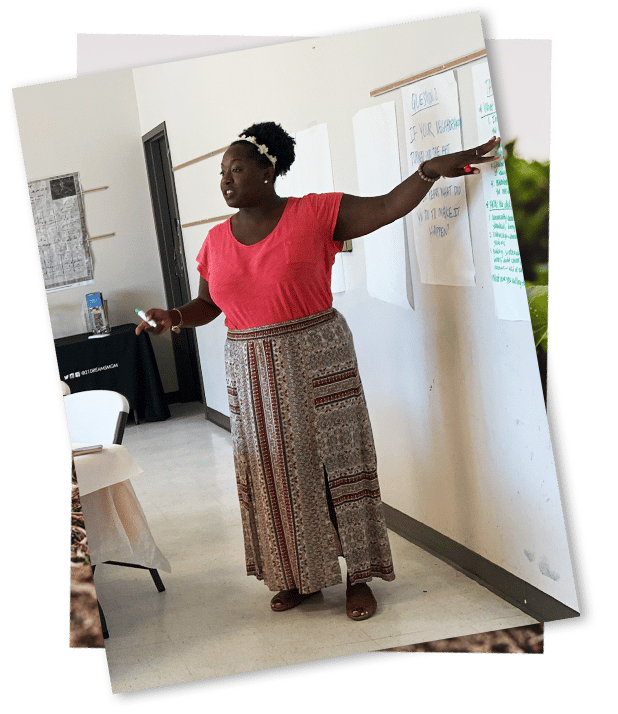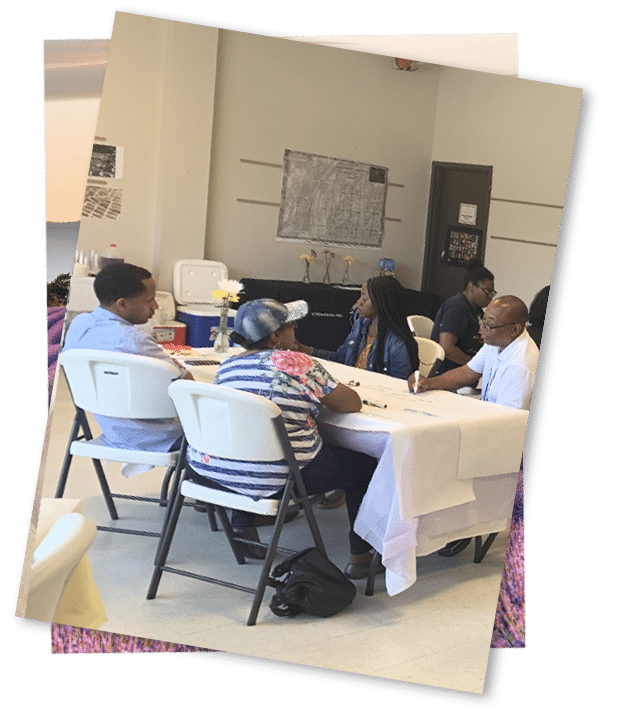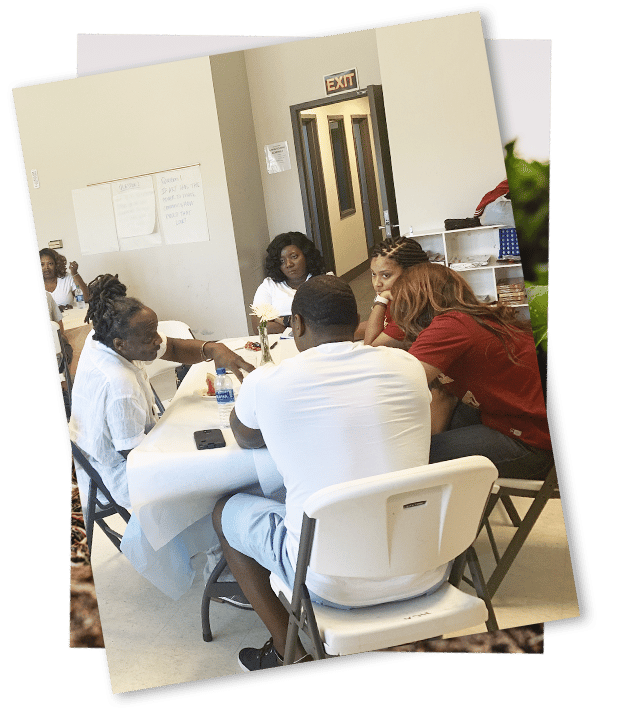
Tuskegee Public Dialogue Team
The Tuskegee Public Dialogue Team (TPDT) represented an integrative public dialogue program tailored for the Black Belt region that produced community assessments enabling a platform for action unlike programs that overlook the impacts of the race within understanding. Through the establishment of the TPDT, Tuskegee University Cooperative Extension, helped communities engage in civil dialogues around racial issues and their intersections with the food system.
The TPDT, led by Dr. Lindsey Lunsford, launched a pilot discussion series with the local art collective 21 Dreams and the City of Montgomery. Using the World Café model facilitated by consultant Natilee McGruder, JD of Growing Green LLC, the dialogue series gauged community interest and input to tailor Cooperative Extension and community programming. After the pilot, attendees expressed a desire to continue to engage in dialogue and to deepen conversations. And thus, the TPDT transformed into the CISC Dialogue Model.
Peacock Tract Dialogue Outcomes

Expanding the Dialogue Model
During the Fall of 2020, the Carver Integrative Sustainability Center (CISC) worked with Brennan Washington of Southern SARE to convene a virtual discussion series focused on learning about the experiences of Black producers during the pandemic and the nongovernmental organizations (NGOs) and 1890 institutions that support them.
The Black Harvest facilitated discussion series furthered the CISC Dialogue Model and showed us how sustainable Black producers and these institutions are facing COVID-19 and how Black producers continue to be resilient in the face of natural disasters as they become more common.
In order to amplify and expand upon the knowledge shared during this discussion series, Dr. Lunsford and Ms. McGruder, JD are currently editing the Professional Ag Workers Journal (PAWJ) Black Harvest Special Issue. The issue presents an edited volume of articles that provide citable documents for policy advocates, researchers, and outreach professionals working to serve Black producers.

Key Takeaways
Dr. Lunsford and Ms. McGruder, JD teach the dialogue model to participants through practical skills for facilitating conversation in communities around racial equity in the food system and community development. Their main takeaways are to use:
